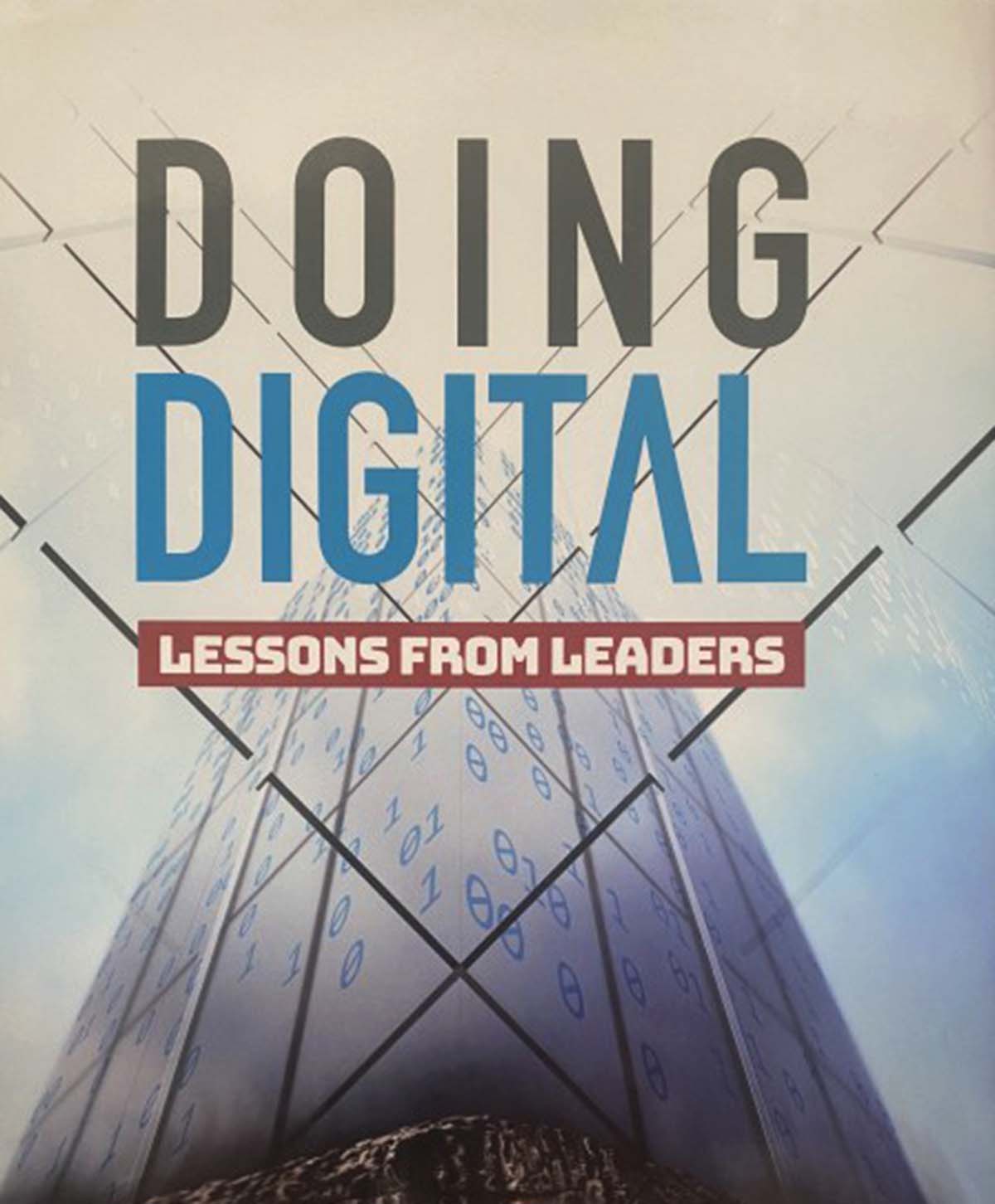Home>Finance>How To Budget And Save Money | Money Management Tips


Finance
How To Budget And Save Money | Money Management Tips
Published: February 28, 2024
Learn how to budget and save money with our expert money management tips. Improve your finance skills and achieve your financial goals. Start saving today!
(Many of the links in this article redirect to a specific reviewed product. Your purchase of these products through affiliate links helps to generate commission for LiveWell, at no extra cost. Learn more)
Table of Contents
Introduction
Welcome to the world of personal finance, where budgeting and saving money play pivotal roles in securing a stable and prosperous future. Managing your finances effectively is not only a prudent decision but also an empowering one, as it grants you the freedom to pursue your aspirations without the weight of financial uncertainty. In this comprehensive guide, we will delve into the art of budgeting and saving money, offering valuable insights and practical tips to help you navigate the intricate landscape of personal finance.
Understanding the principles of money management is essential for individuals and families alike. By mastering the art of budgeting and saving, you can cultivate financial resilience, achieve your long-term goals, and weather unexpected financial storms with confidence. Whether you're aiming to build an emergency fund, save for a dream vacation, or invest in your future, the strategies and techniques outlined in this guide will serve as your compass on the journey to financial stability.
Throughout this article, we will explore the fundamental steps of effective money management, from comprehending your income and expenses to setting savings goals and optimizing your spending. By embracing these principles and integrating them into your daily life, you can take control of your financial well-being and lay the groundwork for a secure and prosperous future.
Join us on this enlightening expedition into the realm of personal finance, where we will uncover the secrets of prudent budgeting, savvy cost-cutting, and strategic saving. Together, we will embark on a transformative journey toward financial empowerment, equipped with the knowledge and tools to sculpt a brighter and more secure tomorrow. So, let's dive in and unlock the potential of your finances, empowering you to achieve your aspirations and embrace a future filled with financial confidence and freedom.
Understanding Your Income and Expenses
Before embarking on the journey of budgeting and saving, it’s crucial to gain a comprehensive understanding of your income and expenses. Your income encompasses all financial inflows, including salaries, wages, bonuses, and any additional sources of revenue. By calculating your total income, you can ascertain the foundation upon which your budget will be built.
Equally important is a thorough comprehension of your expenses. These encompass all financial outflows, ranging from essential costs such as rent, utilities, groceries, and transportation to discretionary expenditures like entertainment, dining out, and luxury items. By meticulously documenting your expenses, you gain insight into your spending habits and identify areas where cost-cutting measures can be implemented.
Tracking your income and expenses over a defined period, such as a month, enables you to discern patterns and fluctuations, providing a clear overview of your financial dynamics. This knowledge forms the cornerstone of effective budgeting, allowing you to allocate your resources judiciously and prioritize your financial goals.
Understanding your income and expenses is not merely a matter of numbers; it’s a profound exercise in self-awareness and financial mindfulness. By embracing this awareness, you lay the groundwork for informed decision-making, prudent financial planning, and the cultivation of a healthy and sustainable relationship with money.
As we delve deeper into the realms of budgeting and saving, this understanding will serve as the bedrock upon which we construct a solid financial framework, empowering you to optimize your resources, curtail unnecessary expenses, and embark on the path to financial freedom and security.
Creating a Budget
A budget serves as a financial roadmap, guiding your spending and saving activities toward predetermined goals. To create an effective budget, start by listing all sources of income and categorizing your expenses into fixed and variable costs. Fixed expenses, such as rent or mortgage payments, remain consistent each month, while variable expenses, like groceries and entertainment, fluctuate.
Once you have a clear view of your income and expenses, allocate specific amounts to each spending category, ensuring that your total expenses do not exceed your income. It’s essential to prioritize necessities such as housing, utilities, and groceries while also earmarking funds for savings and discretionary spending.
Embracing a proactive approach to budgeting involves setting realistic and achievable spending limits for each category. This not only fosters financial discipline but also empowers you to track your expenditures and identify areas where adjustments may be necessary.
Adopting a digital budgeting tool or utilizing budgeting apps can streamline this process, offering real-time insights into your financial standing and enabling you to make informed decisions on the go. Additionally, these tools often provide visual representations of your spending patterns, facilitating a deeper understanding of your financial behavior.
Remember, a budget is a flexible tool that can be adjusted to accommodate changes in your financial circumstances. Whether it’s a salary increase, unexpected expense, or a shift in financial priorities, regularly revisiting and fine-tuning your budget ensures its alignment with your evolving financial landscape.
By creating and adhering to a well-structured budget, you pave the way for financial stability, prudent spending, and the cultivation of healthy saving habits. This foundational step sets the stage for effective money management, empowering you to take control of your financial destiny and steer it toward prosperity and abundance.
Tracking Your Spending
Tracking your spending is a fundamental aspect of effective money management, offering valuable insights into your financial habits and patterns. By meticulously monitoring your expenditures, you gain a comprehensive understanding of where your money goes, enabling you to make informed decisions and identify areas for potential savings.
One of the most accessible and practical methods of tracking spending is through the use of expense tracking apps or software. These tools allow you to categorize your expenses, set spending limits, and receive real-time updates on your financial transactions. By leveraging technology, you can streamline the tracking process and gain a clear overview of your financial behavior.
Additionally, maintaining detailed records of your expenses, whether through digital platforms or traditional methods like spreadsheets and journals, provides a tangible representation of your financial landscape. This hands-on approach fosters a heightened sense of accountability and awareness, empowering you to make conscious spending choices.
Regularly reviewing your spending patterns and comparing them against your budget enables you to pinpoint areas where adjustments may be necessary. Whether it’s curbing discretionary spending, renegotiating service subscriptions, or seeking more cost-effective alternatives, tracking your spending illuminates opportunities for optimizing your financial resources.
Moreover, tracking your spending instills a sense of financial mindfulness, encouraging thoughtful consideration before making purchases. This mindful approach to spending cultivates a deeper appreciation for the value of money and reinforces the importance of aligning your expenditures with your long-term financial goals.
Ultimately, tracking your spending is not merely a task; it’s a transformative practice that empowers you to take control of your financial destiny. By embracing this discipline, you lay the groundwork for prudent financial decision-making, efficient resource allocation, and the cultivation of a sustainable and prosperous financial future.
Setting Savings Goals
Establishing clear and achievable savings goals is a pivotal step in the journey toward financial security and prosperity. By defining specific objectives for your savings, you imbue your financial endeavors with purpose and direction, laying the groundwork for tangible and rewarding outcomes.
When setting savings goals, it’s essential to delineate between short-term, medium-term, and long-term objectives. Short-term goals may encompass building an emergency fund, funding a vacation, or making a significant purchase. Medium-term goals could revolve around saving for a down payment on a home or financing higher education, while long-term goals might involve retirement planning and wealth accumulation.
Each savings goal should be accompanied by a clear timeline and a targeted amount to be saved. This approach not only provides a roadmap for your savings journey but also instills a sense of urgency and accountability, propelling you toward the realization of your aspirations.
Furthermore, aligning your savings goals with your values and aspirations infuses your financial strategy with purpose and motivation. Whether it’s achieving financial independence, securing a comfortable retirement, or realizing a lifelong dream, your savings goals serve as the building blocks of a fulfilling and empowered financial future.
Regularly revisiting and reassessing your savings goals allows for adjustments in response to changing circumstances or priorities. As you progress on your financial journey, you may recalibrate your goals, celebrate milestones, and set new targets, ensuring that your savings strategy remains dynamic and responsive to your evolving needs.
Embracing a proactive approach to savings goal-setting not only fosters financial discipline but also cultivates a sense of accomplishment and empowerment. Each step taken toward your savings objectives brings you closer to a future filled with financial security, freedom, and the realization of your dreams.
Cutting Costs
Implementing cost-cutting measures is a strategic and empowering approach to optimizing your financial resources and bolstering your savings potential. By identifying areas where expenses can be reduced without compromising your quality of life, you can make significant strides toward achieving your financial goals.
One effective strategy for cutting costs is conducting a comprehensive review of your recurring expenses, such as subscription services, memberships, and utility bills. Look for opportunities to eliminate or renegotiate services that no longer align with your priorities or to secure more favorable terms that align with your budget.
Another impactful way to reduce expenses is by embracing energy-efficient practices within your home, such as using programmable thermostats, LED lighting, and energy-efficient appliances. These measures not only contribute to environmental sustainability but also result in tangible savings on your utility bills over time.
When it comes to discretionary spending, adopting a mindful approach can yield substantial cost savings. Whether it’s dining out, entertainment, or shopping, consider exploring budget-friendly alternatives, leveraging discounts, and embracing the concept of conscious consumption. Small adjustments in these areas can lead to significant long-term savings.
Additionally, optimizing your transportation expenses by carpooling, using public transit, or exploring alternative commuting options can yield remarkable cost reductions. Not only does this approach contribute to environmental conservation, but it also alleviates the financial strain associated with fuel and maintenance costs.
Furthermore, embracing a minimalist and decluttered lifestyle can mitigate the temptation of impulsive purchases and unnecessary acquisitions, resulting in sustained cost savings and a more intentional approach to consumption.
By proactively identifying opportunities to trim expenses and embracing a resourceful mindset, you pave the way for enhanced financial resilience, accelerated savings growth, and a greater sense of financial empowerment. Each cost-saving measure adopted contributes to your financial well-being, propelling you toward a future characterized by stability, abundance, and the freedom to pursue your aspirations.
Finding Additional Sources of Income
Exploring supplementary sources of income can significantly augment your financial stability and bolster your savings potential. Whether through part-time work, freelancing, or leveraging your skills and hobbies, diversifying your income streams can provide a valuable financial cushion and accelerate your progress toward achieving financial goals.
One avenue for generating additional income is through the burgeoning gig economy, which offers a plethora of flexible and remote opportunities. From freelance writing and graphic design to virtual assistance and tutoring, these roles enable you to leverage your skills and expertise to earn supplemental income.
Furthermore, embracing the sharing economy by renting out a spare room, offering car rides through ride-sharing platforms, or monetizing underutilized assets can yield a steady income stream. Embracing the principles of collaborative consumption not only generates extra revenue but also contributes to sustainable resource utilization.
Monetizing hobbies and passions presents another avenue for augmenting your income. Whether through crafting, photography, or creating digital content, transforming your hobbies into income-generating pursuits can be both financially rewarding and personally fulfilling.
Exploring part-time or remote work opportunities aligned with your skill set and schedule can also provide a reliable source of supplementary income. Many companies offer flexible arrangements that allow individuals to balance their primary commitments while earning additional income.
Moreover, investing in upskilling and professional development can expand your employment opportunities and potentially lead to higher-earning roles. Acquiring new certifications, enhancing your skill set, or pursuing advanced education can open doors to lucrative career prospects and increased earning potential.
By diversifying your income streams and embracing entrepreneurial endeavors, you not only fortify your financial foundation but also cultivate a resilient and adaptive approach to income generation. Each additional source of income contributes to your financial well-being, empowering you to build a more secure and prosperous future.
Building an Emergency Fund
Establishing an emergency fund is a cornerstone of sound financial planning, providing a safety net against unforeseen expenses and financial setbacks. This fund serves as a crucial buffer, shielding you from the impact of unexpected events such as medical emergencies, car repairs, or temporary loss of income.
When creating an emergency fund, it’s advisable to aim for an amount equivalent to three to six months’ worth of living expenses. This ensures that you have a financial cushion to weather challenging circumstances without resorting to high-interest debt or depleting your long-term savings.
Initiating the fund with small, regular contributions can lay the groundwork for its growth over time. Even modest monthly deposits can accumulate into a substantial reserve, providing peace of mind and financial security in the face of unforeseen challenges.
It’s essential to designate the emergency fund as a separate, easily accessible account, such as a high-yield savings account or a money market account. This demarcation ensures that the funds remain untouched unless truly necessary, while also allowing for potential interest accrual over time.
Regularly reviewing and adjusting the fund’s target balance in response to changes in your financial circumstances or cost of living is a prudent practice. As your income, expenses, or family dynamics evolve, recalibrating the emergency fund ensures that it remains aligned with your current needs and obligations.
Ultimately, the establishment of an emergency fund provides a sense of financial security and resilience, empowering you to navigate unexpected challenges with confidence and stability. By prioritizing the creation and maintenance of this essential financial resource, you fortify your financial foundation and lay the groundwork for a more secure and empowered future.
Investing in the Future
Investing in your future is a transformative and forward-thinking endeavor that paves the way for long-term financial growth and security. By allocating resources toward investment vehicles tailored to your financial goals and risk tolerance, you can cultivate wealth, build a robust financial portfolio, and lay the groundwork for a prosperous tomorrow.
One of the most common avenues for long-term investment is through retirement accounts such as 401(k)s or individual retirement accounts (IRAs). These tax-advantaged accounts offer a structured approach to saving for retirement, often accompanied by employer matching contributions and potential tax benefits.
Additionally, exploring investment opportunities in the stock market, mutual funds, or exchange-traded funds (ETFs) can provide avenues for wealth accumulation and capital appreciation over time. Diversifying your investment portfolio across various asset classes and industries can mitigate risk and optimize potential returns.
Real estate investment presents another avenue for long-term wealth accumulation, whether through rental properties, real estate investment trusts (REITs), or property appreciation. This tangible asset class offers the potential for passive income and long-term growth, often serving as a cornerstone of diversified investment strategies.
Furthermore, embracing the principles of passive income generation through dividend-paying stocks, bonds, or peer-to-peer lending can provide a steady revenue stream and contribute to financial resilience and independence over time.
As with any investment strategy, it’s essential to conduct thorough research, seek professional guidance, and align your investment choices with your long-term financial objectives and risk tolerance. Regularly reviewing and adjusting your investment portfolio in response to market dynamics, life events, and financial goals ensures its alignment with your evolving needs and aspirations.
By investing in your future, you not only cultivate a pathway toward financial independence and prosperity but also imbue your financial journey with purpose and vision. Each investment made represents a step toward a more secure and empowered future, characterized by financial stability, abundance, and the realization of your long-term aspirations.
Conclusion
Congratulations on embarking on this enlightening expedition into the realm of personal finance, where the principles of budgeting and saving money serve as the compass guiding you toward financial empowerment and security. Throughout this comprehensive guide, we’ve navigated the intricate landscape of money management, uncovering invaluable insights and practical strategies to shape a more prosperous and fulfilling financial future.
By understanding the dynamics of your income and expenses, you’ve laid the groundwork for informed decision-making and prudent financial planning. Armed with this awareness, you are poised to create a well-structured budget that aligns with your financial goals and priorities, fostering disciplined spending and efficient resource allocation.
Tracking your spending habits has empowered you to make conscious and informed choices, identifying opportunities for cost optimization and enhanced financial mindfulness. By embracing this practice, you’ve cultivated a deeper appreciation for the value of money and its alignment with your aspirations.
Setting clear and achievable savings goals has imbued your financial strategy with purpose and direction, propelling you toward the realization of your dreams and aspirations. Each savings objective represents a stepping stone toward a more secure and abundant future.
Through the strategic implementation of cost-cutting measures and the exploration of additional sources of income, you’ve fortified your financial foundation, fostering resilience and accelerating your progress toward financial independence.
Building an emergency fund has provided a vital safety net, shielding you from the impact of unforeseen expenses and unexpected challenges. This essential resource ensures that you can navigate life’s uncertainties with confidence and stability.
Finally, by investing in your future, you’ve charted a course toward long-term wealth accumulation and financial security, laying the groundwork for a prosperous and empowered tomorrow.
As you continue your journey toward financial empowerment, remember that each step taken toward prudent money management and strategic saving contributes to your financial well-being and the realization of your aspirations. By embracing these principles and integrating them into your daily life, you are sculpting a brighter and more secure future, filled with financial confidence and freedom.
So, as you navigate the ever-evolving landscape of personal finance, may you find inspiration in the knowledge and tools acquired, empowering you to achieve your aspirations and embrace a future characterized by financial stability, abundance, and the freedom to pursue your dreams.














